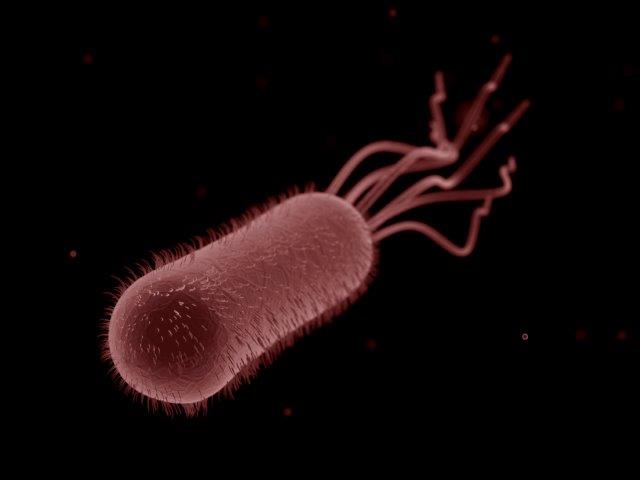Recoding E. coli to become resistant to all viruses
Scientists are close to finishing recoding the Escherichia coli bacterium to work with a different genetic code — one that differs to all other genetic codes on Earth, the organism will have some interesting properties.
Microbiologists at the Harvard Medical School in Boston are close to completing a remarkable feat: the first full genetic recoding of a living organism. This feat begins with Escherichia coli, a simple, single-celled prokaryote organism. Even here the experiments are complex, requiring 62,000 changes to be made to the bacterial genome.
 The purpose of this study is beyond the academic. The recoded E. coli bacterium would fulfill, if things work out, a range of industrial applications. The organism will be able to produce all types of proteins. These proteins have the potential to be more complex than any other known types, with the ability for artificial amino acids to be slotted in. In addition, the organism will be hardy and resistant to all known viruses.
The purpose of this study is beyond the academic. The recoded E. coli bacterium would fulfill, if things work out, a range of industrial applications. The organism will be able to produce all types of proteins. These proteins have the potential to be more complex than any other known types, with the ability for artificial amino acids to be slotted in. In addition, the organism will be hardy and resistant to all known viruses.
To create the super-organism the research team designed the genome on a computer and then synthesized the DNA in short pieces around 2000 DNA letters long. These pieces were then fitted together through gene editing.
To address concerns about such an organism spreading to the environment, the scientists are programming it so it will not function without being "fed" a special type of amino acid, of a type that does not occur naturally. This means that should containment protocols fail and the bacterium enters the environment outside of the laboratory it would be unable to survive or reproduce.
Once the proof-of-concept study has been completed, the application of gene modification could be applied further. Interviewed by New Scientist magazine, lead researcher Professor George Church said he would like to create human stem cells that are resistant to all viruses.
 The process to create the organism is discussed in the journal Science. The research paper is: "Design, synthesis, and testing toward a 57-codon genome."
The process to create the organism is discussed in the journal Science. The research paper is: "Design, synthesis, and testing toward a 57-codon genome."


Posted by Dr. Tim Sandle
 The purpose of this study is beyond the academic. The recoded E. coli bacterium would fulfill, if things work out, a range of industrial applications. The organism will be able to produce all types of proteins. These proteins have the potential to be more complex than any other known types, with the ability for artificial amino acids to be slotted in. In addition, the organism will be hardy and resistant to all known viruses.
The purpose of this study is beyond the academic. The recoded E. coli bacterium would fulfill, if things work out, a range of industrial applications. The organism will be able to produce all types of proteins. These proteins have the potential to be more complex than any other known types, with the ability for artificial amino acids to be slotted in. In addition, the organism will be hardy and resistant to all known viruses.



No comments:
Post a Comment
Pharmaceutical Microbiology Resources